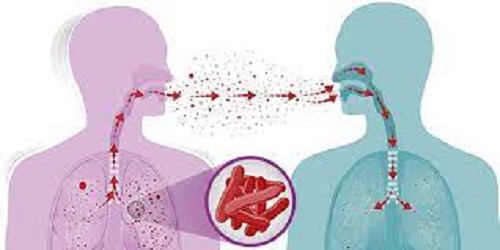This post has already been read 392 times!
A recent report by the National Tuberculosis, Buruli Ulcer, and Leprosy Control Programme (NTBLCP) revealed that more than 18 Nigerians die hourly from tuberculosis (TB). Deputy Director of NTBLCP, Mrs. Itohowo Uko, stated that TB is an airborne infectious disease caused by a germ called Mycobacterium Tuberculosis, which primarily affects the lungs but can also affect other parts of the body.
The World Health Organization (WHO) has classified Nigeria as one of the 14 countries worldwide with a high burden of TB. Uko emphasized that Nigeria has the sixth largest burden of TB patients globally and the highest in Africa, with 104,904 cases reported in 2017. Furthermore, she explained that one untreated case of TB can infect between 10 and 115 people per year. Uko called on stakeholders to take action to reduce the TB burden in Nigeria and reach zero TB deaths.
Dr. Cynthia Onwuteaka, a senior Programme Officer with KNCV Nigeria, described TB as the world’s second deadliest disease after COVID-19. She estimated that around 500,000 people in Nigeria suffer from TB annually. Onwuteaka emphasized the importance of World Tuberculosis Day, which is observed on March 24, in raising public awareness about the consequences of the disease and increasing access to care.
According to a 2017 global TB report by the WHO, tuberculosis is one of the top 10 causes of death worldwide, with about 4,500 lives lost per day. The disease is also a leading cause of death among HIV patients. However, TB is preventable and curable with early diagnosis and treatment.
Nigeria has been listed as the seventh country with the highest burden of TB worldwide. The country recorded 403,000 cases of TB in 2017, with 157,000 deaths. Although the number of cases has increased to 467,000 in 2021, the death-to-infection rate remains at 18 deaths per hour. This figure has been consistent since 2017, raising doubts about its accuracy.
Some experts, such as Dr. Ifeanyi Ohabuenyi, the Medical Director of St. Bridget Memorial Hospital, question the authenticity of the figures. Ohabuenyi believes that the data is inflated to attract funding from international donor agencies. He argues that TB is nearly eradicated in Nigeria and that HIV is now a more significant concern. He suggests that the data is manipulated to continue receiving funding.
In conclusion, the report from the NTBLCP suggests that more than 18 Nigerians die hourly from TB. Nigeria has the sixth largest burden of TB patients globally and the highest in Africa. World Tuberculosis Day provides an opportunity to raise awareness and improve access to care. However, skepticism exists regarding the accuracy of the figures, with concerns that they may be inflated to secure funding.
Tuberculosis (TB) is a chronic respiratory tract condition caused by mycobacterium tuberculosis. It is transmitted through the air when someone with TB coughs and releases the bacteria into the air. The bacteria then settle in the respiratory tract of someone who inhales it. The body’s defense mechanism can initially control the infection, but in certain conditions, the inactive bacteria can reactivate and cause destruction of the lungs and spread to other parts of the body.
Symptoms of TB include chronic cough, weight loss, night sweats, and low-grade fever. Diagnosis can be done through a chest X-ray, a Mantoux test (a skin sensitivity test), an acid-fast bacillus test (using sputum or gastric fluids), or a genexpert test (a DNA-modulated test). Treatment for TB involves at least six months of anti-tuberculosis drugs.
Prevention measures include good oral hygiene, proper cough etiquette (coughing into the elbow), environmental sanitation (such as proper housing with ventilation), prompt diagnosis and treatment, and health education on personal hygiene and cough etiquette.
However, the reported figure of 18 deaths per hour as a result of TB in Nigeria is seen as under-reported. The figure is based on those who visit public medical facilities and does not take into account those in rural areas who do not visit hospitals. Experts believe that the true number of deaths from TB is higher and that the reporting system has limitations.
To tackle the problem, experts suggest that the government should engage in a massive public awareness campaign on the importance of personal hygiene and early check-ups for persistent coughs. They also recommend that testing and treatment for TB should be made free for patients. The awareness campaigns should not only target urban areas but also reach rural communities where many potential victims live.
Overall, TB is a serious health issue in Nigeria, and efforts should be made to improve diagnosis, treatment, and prevention to reduce the number of deaths from the disease.



